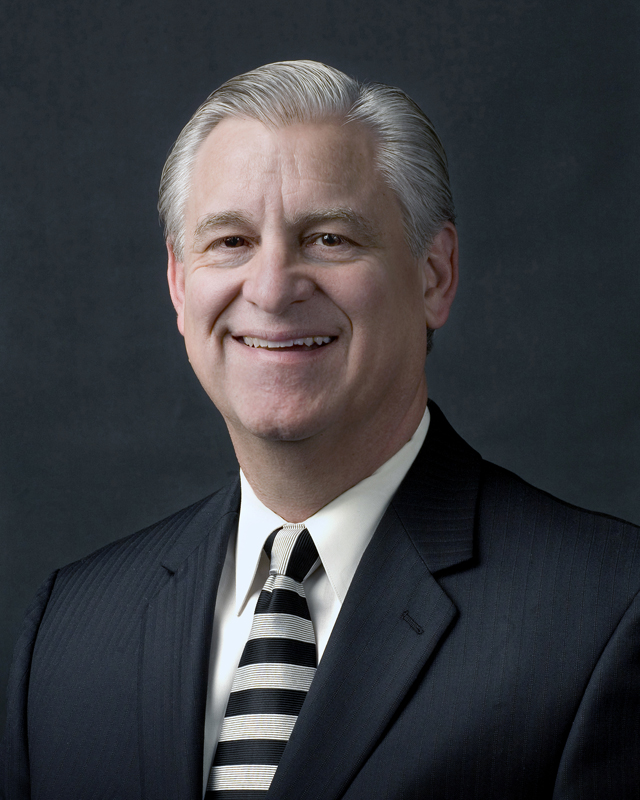
by David K. Bernard
THIS YEAR OUR NATION and our world have experienced many violent events, including terrorist attacks, shootings by police officers, and shootings of police officers. The church should not be silent in the face of tragedy, but we should offer a godly, scriptural perspective.
As a church we shouldn’t promote a particular political agenda, but we should preserve our ability to minister to people of all political persuasions and to speak with moral clarity regardless of politics. As Christians we shouldn’t respond in the same way as unbelievers, but our speech, actions, and interactions on social media should communicate the grace of God and the power of the gospel.
How should Pentecostals approach human government generally and, more specifically, law enforcement agencies and personnel? First, we follow Romans 13: 1-7, which advocates respect and submission rather than opposition to governmental authorities, acknowledging that “the powers that be are ordained of God.” This statement doesn’t mean every governmental action is appropriate and shouldn’t be corrected, but it means God has ordained government and Christians should uphold the rule of law in a fallen, imperfect world. (See also I Peter 3: 13-17;
I Timothy 2:1-2.) God has given humanity the right and responsibility to establish and maintain human governments committed to goodness and justice. The form of government may vary from nation to nation, but Christians should support the following basic principles:
I . Every human should be treated with respect and dignity, and every human life should be held as sacred.
2. Citizens in our pluralistic society should have the right and freedom to think, speak, and act as they choose, as long as they extend the same rights and freedoms to others, respect the property rights of others, and do not harm other individuals or society.
3. A commitment to truth and fairness should inform the writing and enforcement of laws. We should reject corruption, partiality, and prejudice.
4. The government is responsible to maintain peace and security.
Second, the task of governance, eluding law enforcement, is a collective one. The authority of human government is not located in the person of individual officials, but in the principles just outlined. Likewise, authority to enforce law is not vested in officers as individuals but is based upon the principles they collectively represent and defend. Therefore, no individual government official is above the law but rather must be held accountable to the law without partiality or preference.
There can be room for improvement in even the best systems of government. Moreover, overt injustice and corruption are common in many parts of the world. Thus, both affirming and dissenting voices should enjoy free expression. Under no circumstances, however, should an individual attempt to take justice into his or her own hands to perpetrate violence or kill in the name of reform or retribution. Because we are all affected by the way governance is implemented and laws enforced and we are called to live out our faith in this world, we should work to promote truth, peace, and justice in government.
Whenever someone is killed it is a tragedy, for human life is sacred. When terrorists attack, we must condemn this action, regardless of the victims’ identity or lifestyle. If someone kills police officers when they are fulfilling their role as public servants, likewise we must condemn this action, regardless of the claimed justification. When questions arise about a shooting by a police officer, the situation needs to be investigated thoroughly to ascertain truth and uphold justice. In the vast majority of cases the police in our nation act in our best interests to serve and protect us. We also recognize that sometimes in our history law enforcement officers have engaged in racial profiling, used excessive force, or otherwise perpetrated injustice. In some cases, our own ministers and members have experienced injustices. When questions arise about an action, it is important to respond peacefully, seek truth through an appropriate process, avoid premature judgments based on stereotypes, ensure that justice prevails, and support officers when they do what is necessary to ensure safety.
We live in a broken world. Every day we face the harsh realities of injustice and violence. We are surrounded by evil, but we are not powerless or afraid. The enemy of our souls would like to use incidents such as these to cause division and strife in society and even in the church. Our Lord Jesus calls us to follow His example and overcome evil with good. Sadly, prejudices and group loyalties can distract us from this calling. We are tempted to forget our humanity and make enemies of our neighbors. We are tempted to fight evil with evil and in the process become evil ourselves.
But we must not succumb to such temptations. Rather, we must love relentlessly and endlessly. We must proclaim the gospel of Jesus Christ and demonstrate its power to defeat evil, not through violence and hatred, but by transforming one human heart at a time. We must proclaim this truth for everyone without qualification or exception, and we must bring this message into our communities by word and deed.
PENTECOSTALHERALD.COM 7

